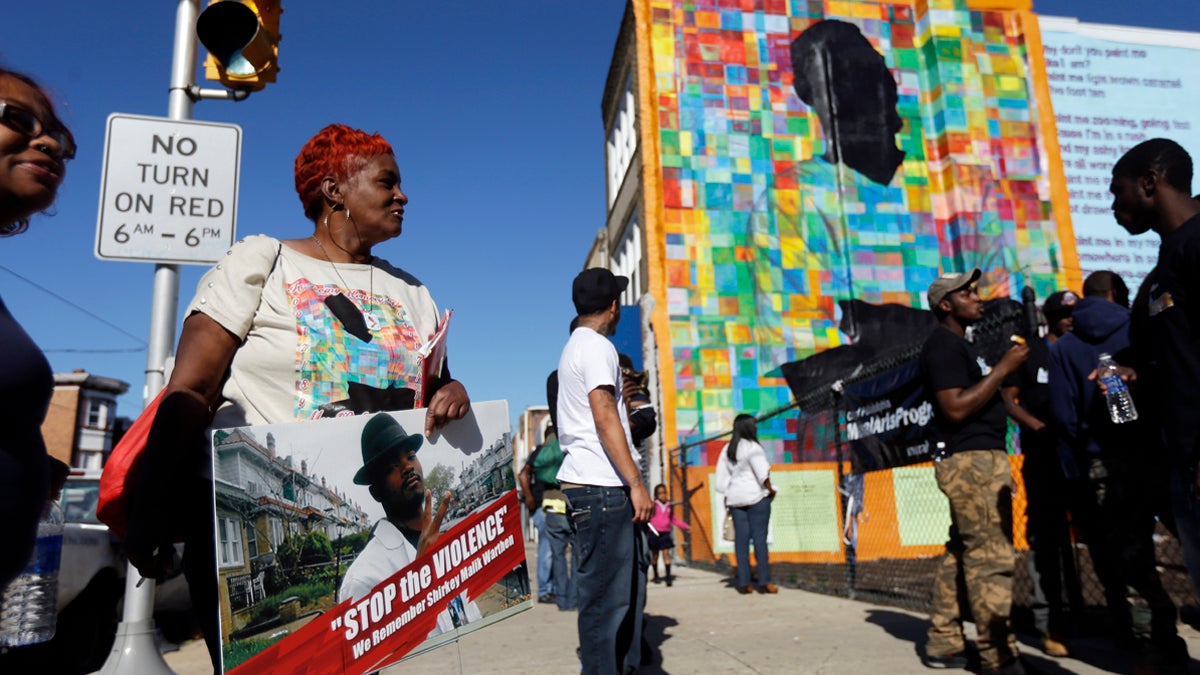Pa. cities vary in response to firearm ordinance rulings, legislative activity

In this file image
Allentown City Council is looking at reinstating as many as three ordinances previously repealed to avoid lawsuits facilitated by Act 192.
The state law was struck down in June. A week later, state Sen. Richard Alloway, R-Adams, introduced a bill that would reinstate the same provisions.
Supporters say the goal is to force uniformity among Pennsylvania’s 2,500 or so municipalities, which aren’t authorized to regulate firearms anyway.
Basically, Act 192 and its successor bill give standing to file lawsuits to gun owners, regardless of residency or whether they’d been affected by the ordinance they’re challenging. Potential harm is enough, in other words. And municipalities would have to pay legal costs incurred by successful plaintiffs.
The potential expense prompted nearly 100 communities to rescind related ordinances.
Some had been on the books for decades, while others passed as a sort of mass response by city mayors to what they described as legislative inaction to strengthen gun laws.
Most Pennsylvania municipalities, like Erie, aren’t revisiting the issue because they say that even if the new bill doesn’t become law, legal ramifications make these ordinances unenforceable.
Others, such as Easton, are hanging back to see what happens with the new bill before doing anything.
Easton Mayor Sal Panto says, depending, he might try again to establish local gun control measures that failed in 2008. (He and his wife Pam, who was on council at the time, split votes on that one.) At the time, Panto said Easton wouldn’t defend the ordinance, if challenged. But the bill now before the state legislature allows plaintiffs to seek reimbursement even if the defendant city repeals the contested ordinance after getting sued.
In Allentown, City Council will vote in August on re-instituting the city’s requirement that firearms owners tell police within 48 hours if their gun’s been lost or stolen, according to Mayor Ed Pawlowski.
“We’re looking for ways to stem gun violence,” Pawlowski says. “When you can trace these weapons back to their owners, they were saying they’re lost or stolen. That’s okay one time, but when you find that multiple times? Something’s obviously happening, and it’s probably trafficking of illegal weapons.”
Allentown repealed the reporting requirement in 2015, as well as bans on open carry parking and firing ranges in neighborhoods.
Pawlowski isn’t as certain Allentown will move ahead with re-establishing the bans.
The playground rule appears to conflict with state law and the firing range restriction might contradict state zoning code, he says.
Harrisburg, meanwhile, just won a lawsuit over five of its gun ordinances. U.S. Law Shield’s lawyer Justin McShane didn’t respond to questions about appeal possibilities.
Firearm Owners Against Crime’s similar lawsuit against the capital city remains unresolved.
NRA isn’t moving on its challenge of Lancaster’s lost and stolen gun reporting requirement, an endeavor which thus far cost the organization well over $100,000, according to attorney Jonathan Goldstein.
The gun rights group lost court battles against Philly and Pittsburgh. Officials, however, are wary of enforcing their ordinances because of the potential addition drain on the cities’ solicitor’s offices.
Allentown didn’t enforce its ordinances much in the past.
And it doesn’t seem like that would change once any of them is back on the books.
“Even if we don’t accomplish anything, we want to make a statement that we care about our citizens and we are trying to make a difference in getting these illegal weapons off our streets,” Pawlowski says.
WHYY is your source for fact-based, in-depth journalism and information. As a nonprofit organization, we rely on financial support from readers like you. Please give today.



